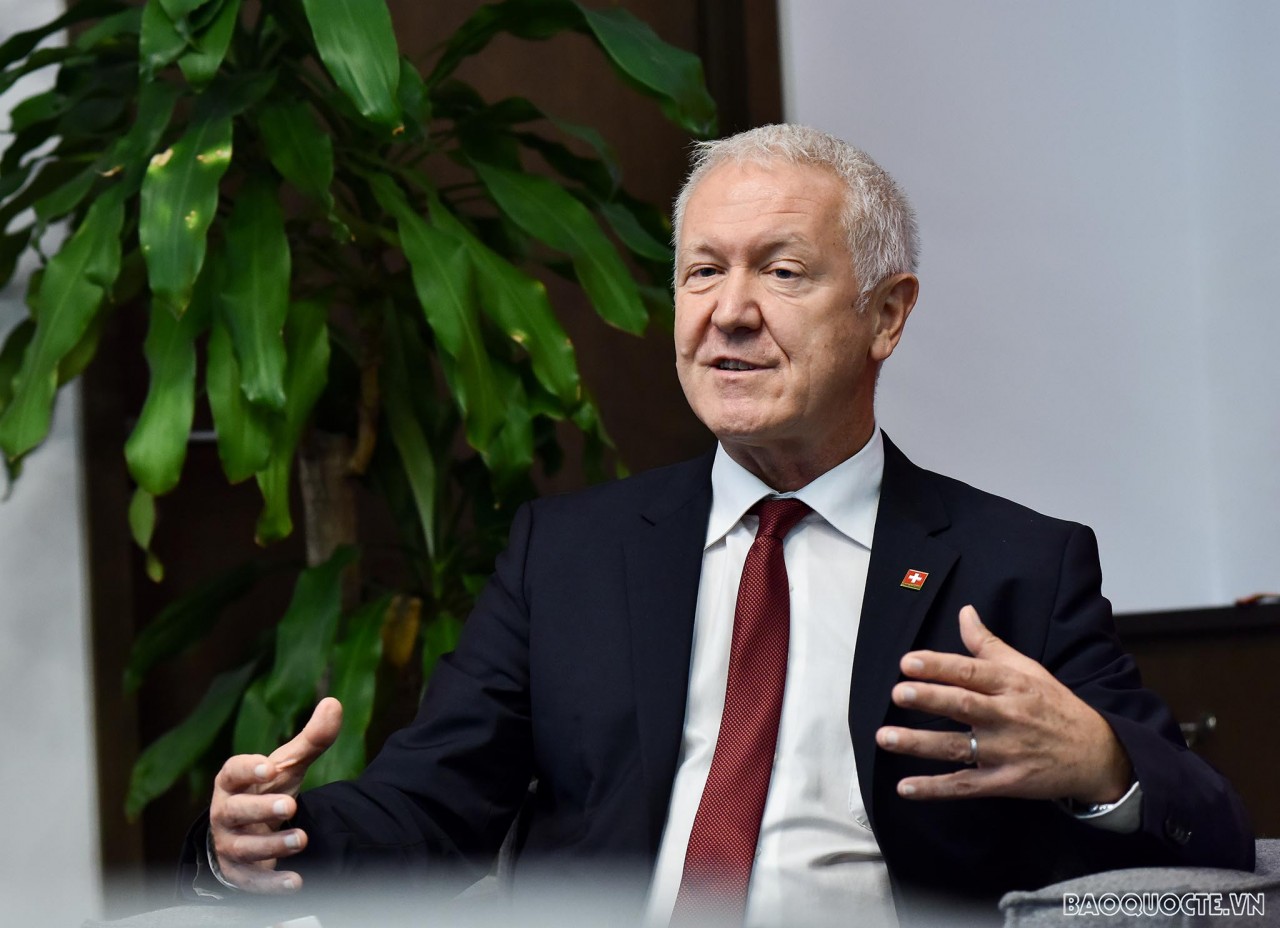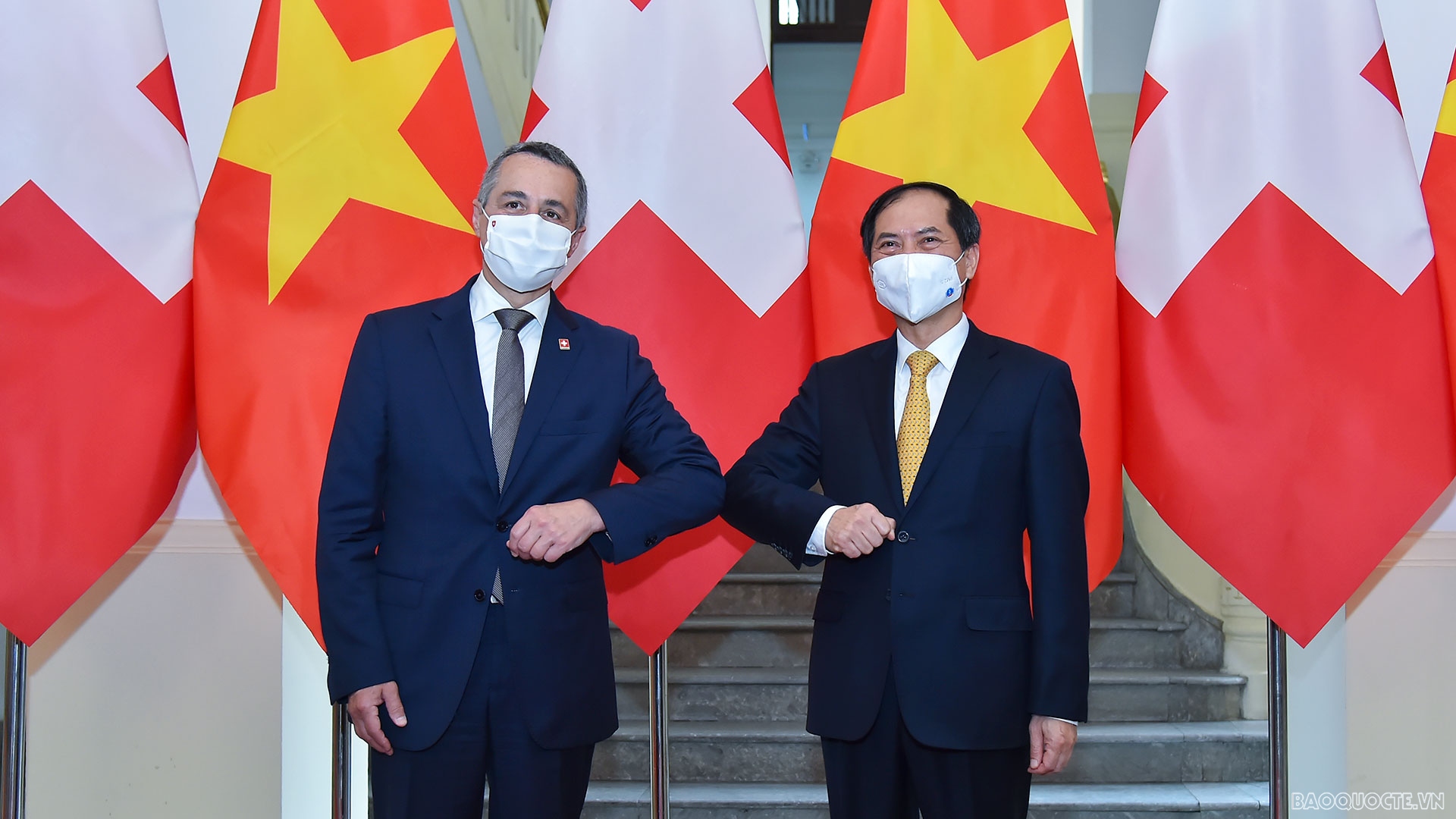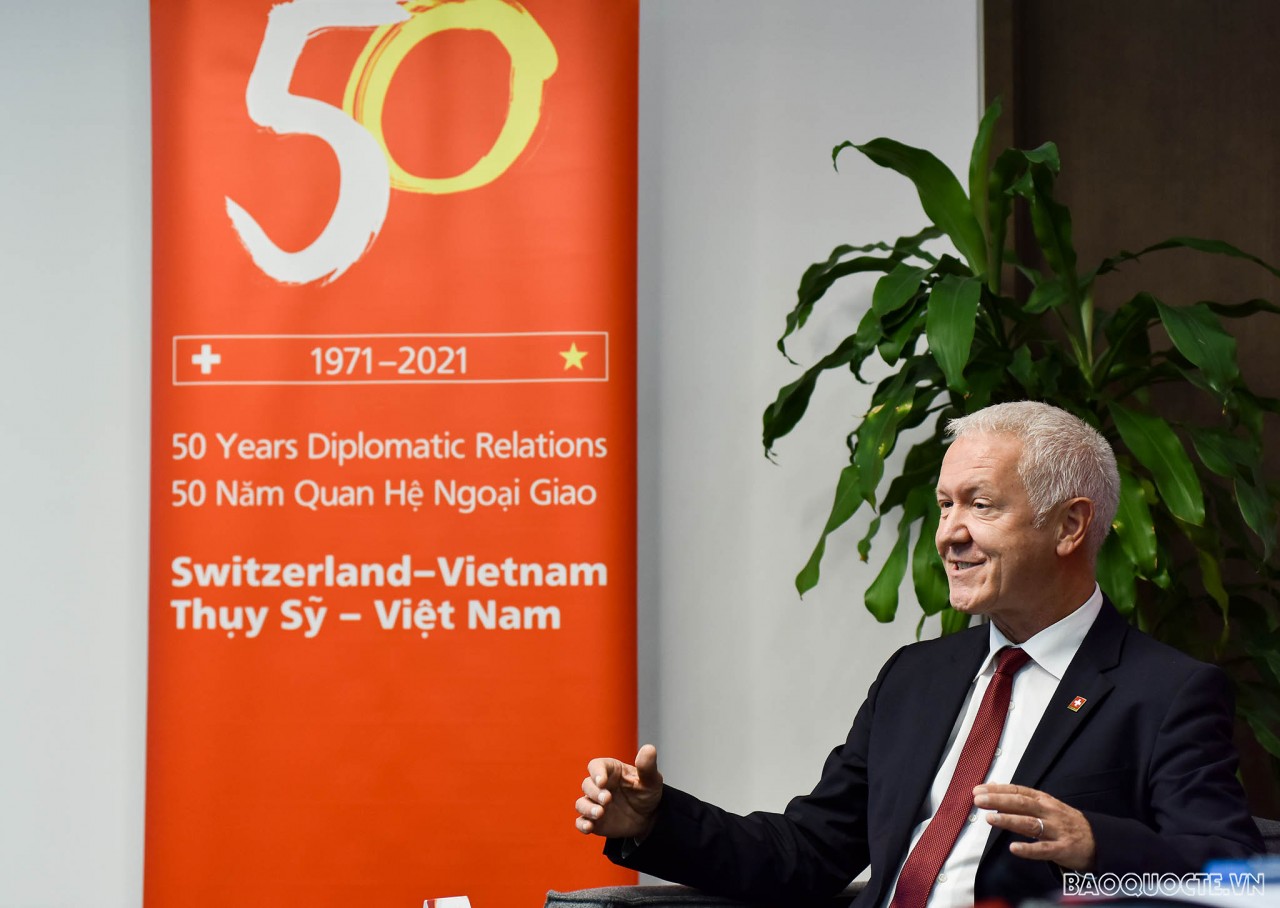
Viet Nam-Switzerland: A symbol of close relationship for peace
Latest
 |
| Ambassador of Switzerland to Viet Nam H.E. Ivo Sieber. (Photo: Nguyen Hong) |
How did the Switzeland-Viet Nam relations start and what is your general assessment on the bilateral relationship between the two countries?
The Switzeland-Vietnam relations dated back to the second half of the nineteenth century, when Swiss trading companies, such as Diethelm and Biedermann, came to Viet Nam.
The first Swiss coming to Viet Nam mainly engaged in trade, engineering and agriculture.
In the early 20th century, Alexandre Yersin, the Swiss-born French bacteriologist who discovered bubonic plague bacillus in Hong Kong (China), moved to Viet Nam.
He planted rubber trees and cinnabar trees, which are used to make anti-malarial drugs. He has contributed to promoting scientific and medical activities, founding the Hanoi Medical University and the Pasteur Institute in Nha Trang.
In 1954, as a neutral country, Switzerland hosted the Geneva Conference, the first international conference in which the Vietnamese delegation officially participated. These initial exchanges and connections have laid a solid foundation for the establishment of bilateral diplomatic relations.
In 1971, Switzerland became one of the first Western countries to establish diplomatic relations with Viet Nam and the Swiss Embassy was opened in Ha Noi in 1973.
Viet Nam and Switzerland have regularly exchanged visits at every level over the last 50 years. Most recently, Swiss Vice-President Ignazio Cassis visited Ha Noi in August, bringing along a COVID-19 Emergency aid package worth CHF 5 million (VND 126 billion) to support Viet Nam in its fight against the pandemic.
The journey of half a century of Viet Nam-Switzerland relations has been marked by continuous cooperation with many impressive results.
Bilateral cooperation initially focused on development cooperation and humanitarian aid.
Over the last 30 years, the Swiss government has granted over CHF 600 million (VND 15 trillion) in official development aid (ODA) with the aim of accompanying with the development process of Viet Nam.
Currently, Switzerland continues to support Viet Nam’s economic development via a 4-year development cooperation program geared to foster more inclusive and sustainable economic growth and to enhance the private sector’s competitiveness and market access.
Cooperation has expanded to other areas, most importantly economic exchanges. Other areas include education (Swiss Government Excellence Scholarships for Vietnamese master, Ph.D. degree holders and young researchers), science and innovation (the Swiss National Science Foundation and the National Foundation for Science and Technology Development/NAFOSTED co-fund joint projects of Swiss-Vietnamese researcher teams in various fields).
The two countries share the common goal of promoting multilateralism and enhancing the respect of international law. As middle powers, both Viet Nam and Switzerland are deeply dependent on a global rules-based system, which ensures that smaller actors can thrive along with bigger powers.
 |
| Minister of Foreign Affairs Bui Thanh Son (right) welcomes Swiss Vice President and Minister of Foreign Affairs Ignazio Cassis. (Photo: Tuan Anh) |
What are the achievements in the economic field, i.e. in terms of Swiss investments in Viet Nam and bilateral trade?
Overall, the economic relationship between Switzerland and Viet Nam is the driving force and the largest area of cooperation between the two countries and there is still potential for further growth, especially in investment.
By the end of 2020, the Swiss direct investments in Viet Nam amounted to CHF 2 billion (VND 50 trillion). Over 100 Swiss companies are actively present here. They have created more than 20.000 jobs in different sectors, including logistics, food processing, pharmaceutical, construction, IT, textiles and shoe manufacturing.
According to the most recent ASEAN Investment Report, Switzerland was the 9th largest foreign investor and the biggest European investor in ASEAN during the period of 2019-20.
Switzerland is now the 19th biggest trading partner of Viet Nam and there are still potentials for Swiss direct investments in Viet Nam.
It is my strong belief that the conclusion of a free trade agreement between Viet Nam and EFTA (ie. Switzerland, Norway, Iceland and Liechtenstein) will give another strong impulse for Swiss companies to take a serious look at Viet Nam as an attractive and interesting place to do business.
As for trade, the overall volume amounted to CHF 3.2 billion (VND 80 trillion) in 2020, with a relatively light decline compared to 2019 (due to the COVID-19 pandemic).
The Swiss market (with its 8 million population) is naturally small, but Viet Nam is a big beneficiary of trade with Switzerland, as there is a sizable trade surplus in Viet Nam’s favor. The surplus for Viet Nam in 2019 and 2020 reached over CHF 2.1 billion (VND 51.2 trillion) per year.
In your opinion, which are the most promising areas for cooperation between the two countries in the coming time?
Post-COVID-19 recovery is being put at the top of priorities of every country all over the world. Switzerland and Viet Nam are not exceptional.
Moreover, our two countries should focus our discussions on the areas of sustainable development, such as finding the solutions to climate change, exploring new ways of producing and consuming, taking care of the people who are not beneficiaries of economic growth, etc.
The Swiss government currently provides assistance to help the Mekong region to cope with challenges caused by climate change. Under this framework, we are accompanying the Mekong River Commission to set up a project of comprehensive adaptation to minimize the risk of floods in the urban core area of the southern province of Can Tho.
Exchanges in education and research, innovation and digitalization, as well as cultural cooperation all bear big potentials for cooperation between the two countries.
 |
| Ambassador of Switzerland to Viet Nam Ivo Sieber. (Photo: Nguyen Hong) |
Switzerland is campaigning for a seat on the United Nations Security Council (UNSC) for the 2023-2024 term with the slogan "A Plus For Peace". Could you please share with our readers more details about this?
It is very important for Switzerland as it is the first time we are running for the position of a non-permanent member of the UN Security Council.
With our neutrality and humanitarian tradition, Switzerland strongly desires to contribute to peace in the world. Therefore, if elected to the UNSC, we would like to act as “a plus for peace”, with the white cross on our national flag already symbolizing this “plus”.
That means we will mainly focus on such themes as adherence to international law, solidarity with the less fortunate ones and respect of international humanitarian law.
It is clearly seen that as a non-permanent member of the UNSC in 2020-2021, Viet Nam has exerted much of its impressive effort on international humanitarian topics. The Swiss are keen to learn from Viet Nam’s experience and to build on Vietnamese achievements as a UNSC member.
Switzerland has contributed to building a new conference hall for the Diplomatic Academy of Viet Nam. There will be a “Geneva Conference Room” very soon in Ha Noi, linking the “Capital of Peace” with Viet Nam’s capital.
Both Viet Nam and Switzerland are very proud of this cooperation. The conference hall was designed and built to mark the 50th anniversary of the establishment of bilateral relations between our two countries and is expected to become a symbol of our strong ties beyond 2021.












